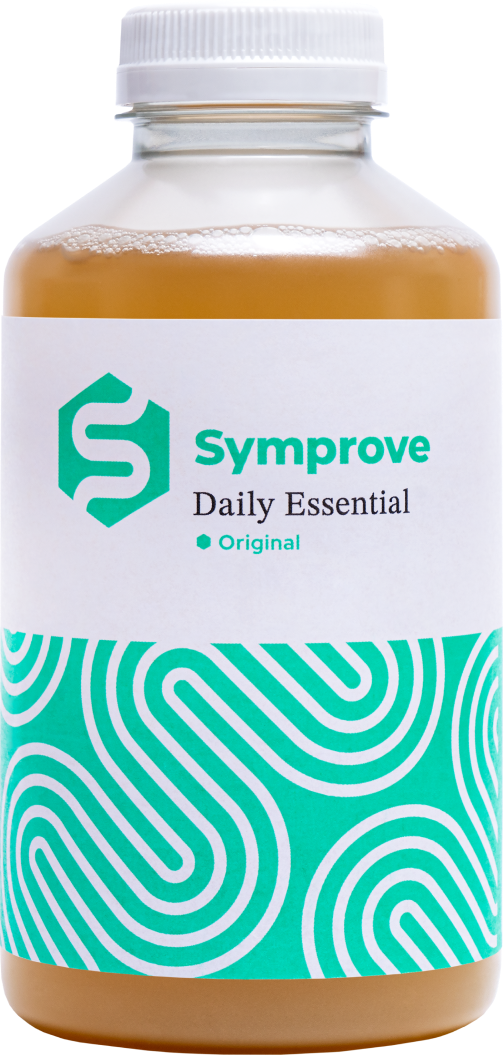Introduction
Antibiotics are a cornerstone of modern medicine, crucial for treating bacterial infections and saving lives. However, with the growing understanding of the gut microbiome's role in overall health, the negative impact of antibiotics on this delicate ecosystem has become a significant concern. As healthcare professionals (HCPs), we are often at the forefront of patient counselling and antibiotic stewardship, it is essential to balance the benefits of antibiotic therapy with strategies to mitigate its adverse effects on the gut microbiome. This article explores the mechanistic impact of antibiotics on the gut microbiome, the potential role of probiotics, and practical guidance for supporting gut health during antibiotic therapy.
The Role and Impact of Antibiotics
While antibiotics are essential for managing bacterial infections, Antibiotics are known to disrupt the balance of gut microbiota by reducing microbial diversity and facilitating the overgrowth of harmful bacteria, like Clostridium difficile, which is associated with more severe cases of Antibiotic-associated diarrhoea (AAD). These disruptions can persist for extended periods, affecting gut resilience and leading to chronic dysbiosis. (1)
Mechanistic Impact on the Gut Microbiome
Antibiotics affect the gut microbiome at a cellular level by disrupting the balance of commensal bacteria. Antibiotics target not only pathogenic bacteria but also the beneficial bacteria that reside in the gut, leading to a decrease in microbial diversity. This reduction can affect metabolic functions, immune modulation, and gut barrier integrity, which are vital roles performed by a healthy gut microbiome. (2,3)
The gut microbiome's ability to produce the short-chain fatty acids (SCFAs) acetate butyrate and propionate, crucial for maintaining gut health and integrity, can be significantly reduced by antibiotics. Recently, intestinal produced SCFAs have been shown to affect immunity directly and indirectly at extraintestinal sites such as the liver, lungs, reproductive tract, and brain. Dysbiotic gut microbiomes, such as those affected by antibiotics, experience altered production of SCFAs, which can be detrimental to gut and overall health. (4,5)
HCPs play a critical role in educating patients about the potential impacts of antibiotics on gut health. When prescribing and dispensing antibiotics, HCPs can provide guidance on the importance of maintaining gut health and recommend evidence-based interventions such as probiotics to protect the microbiome and mitigate side effects.
Differences Between Infants and Adults
Research supports the idea that the gut microbiome is highly dynamic and differs significantly between infants and adults, particularly in how it responds to antibiotics. In infants, whose gut microbiome is still developing, antibiotics can cause pronounced and long-lasting disruptions. This is particularly evident when antibiotics are administered during critical windows of microbial colonization, like the perinatal period. (6)
Microbial Modulation (6)

Disruptions to maternal gut microbiota during pregnancy, especially through antibiotic use, can alter the microbiota passed on to the infant, either through vaginal delivery or breastmilk, leading to changes in immune function and an increased susceptibility to chronic diseases. Studies show that early-life exposure to antibiotics alters the microbial composition, potentially increasing the risk of diseases such as allergies, asthma, and obesity later in life. (7,8)
In adults, while the microbiome is more stable, repeated use of antibiotics - especially broad-spectrum types—can significantly disrupt microbial diversity. This reduction in microbial stability increases the risk of conditions such as C. difficile (CD) infection and other gut-related issues. (9)
Broad-Spectrum vs. Narrow-Spectrum Antibiotics
Not all antibiotics have the same impact on the gut microbiome. Broad-spectrum antibiotics, such as broad-spectrum penicillin's, cephalosporins and fluoroquinolones, target a wide range of bacteria and are more likely to cause significant gut dysbiosis and are associated with CD. (9) In contrast, narrow-spectrum antibiotics are designed to target specific pathogens, reducing the collateral damage to the gut microbiota. (10) HCPs can play a key role in encouraging narrow-spectrum antibiotics where appropriate, aligning with antimicrobial stewardship principles to reduce unnecessary broad-spectrum use and mitigate gut microbiome disruption.
The Role of Probiotics
Probiotics have gained considerable attention as a strategy to counteract the negative effects of antibiotics on the gut microbiome. These live microorganisms, when administered in adequate amounts, can benefit the host by restoring the balance of gut bacteria.
Probiotics aid this process through several mechanisms, such as competitive exclusion of pathogens, production of SCFAs that support gut health, and modulate the immune response.
When choosing a probiotic, HCPs should consider several criteria:
- Strain Specificity: Different strains have different effects, and selecting the right strain is crucial for achieving the desired clinical outcome.
- Viability: The ability of probiotics to survive gastric acid and reach the intestines in an active form is critical
As HCPs we are in a unique position to advise patients on suitable probiotic formulations and ensure they understand the benefits of choosing specific probiotic strains that have been supported by clinical evidence.
Clinical Evidence Supporting Probiotics Use with Antibiotics
Clinical evidence has demonstrated that certain probiotics may reduce the risk of AAD and improve gut health during and after antibiotic use. A meta-analysis of randomised controlled trials has shown that probiotics, particularly strains like Lactobacillus rhamnosus may be effective in preventing AAD and can support gut microbiome recovery. (11,12)
Timing and Dosing of Probiotics During Antibiotic Therapy
A common question among HCPs is when to administer probiotics in relation to antibiotic therapy. There has been some emerging data that suggest probiotics may hinder recovery of the microbiome. However, most research in this area supports probiotic use with antibiotics. The general recommendation is to take probiotics during and after the course of antibiotics to maximise their beneficial effects. (11)
During Antibiotic Course: Probiotics can help maintain gut microbial balance by replenishing beneficial bacteria.
Post-Antibiotic Course: Continuing probiotics after antibiotic therapy can aid in faster recovery of the gut microbiome.
HCPs can provide valuable guidance on the timing of probiotic administration and reinforce the importance of continuing probiotic use beyond the antibiotic course to support gut health recovery.
Practical Tips for Supporting Gut Health During Antibiotic Therapy

Conclusion
The negative impact of antibiotics on the gut microbiome is an important consideration for HCPs. By understanding the mechanistic effects of antibiotics and the supportive role of probiotics like Symprove, HCPs can provide evidence-based recommendations to mitigate these effects. Utilising strategies such as recommending specific probiotic strains, advising on optimal timing, and dosing, and promoting a gut-friendly diet can help maintain gut health in patients undergoing antibiotic therapy.
References
- Liu, Q., Zhong, H., Zhang, Q., & Xu, Z. (2023). Antibiotics and antibiotic-associated diarrhea: A real-world disproportionality study of the FDA adverse event reporting system from 2004 to 2022. BMC Pharmacology and Toxicology, 24, 29. https://doi.org/10.1186/s40360-023-00710-w
- Carabotti M et al. (2015). The gut-brain axis: interactions between enteric microbiota, central and enteric nervous systems. Ann Gastroenterol;28(2):203-209.
- DeGruttola AK et al. (2016). Current Understanding of Dysbiosis in Disease in Human and Animal Models. Inflamm Bowel Dis;22(5):1137-50.
- Mann, E.R., Lam, Y.K. & Uhlig, H.H. Short-chain fatty acids: linking diet, the microbiome and immunity. Nat Rev Immunol 24, 577–595 (2024). https://doi.org/10.1038/s41577-024-01014-8
- Ratajczak W, Rył A, Mizerski A, Walczakiewicz K, Sipak O, Laszczyńska M. Immunomodulatory potential of gut microbiome-derived short-chain fatty acids (SCFAs). Acta Biochim Pol. 2019 Mar 4;66(1):1-12. doi: 10.18388/abp.2018_2648. PMID: 30831575
- Yao, Y., Cai, X., Ye, Y., Wang, F., Chen, F., & Zheng, C. (2021). The Role of Microbiota in Infant Health: From Early Life to Adulthood. Frontiers in Immunology, 12, 708472. https://doi.org/10.3389/fimmu.2021.708472
- Nyangahu, D.D., Lennard, K.S., Brown, B.P. et al. Disruption of maternal gut microbiota during gestation alters offspring microbiota and immunity. Microbiome 6, 124 (2018). https://doi.org/10.1186/s40168-018-0511-7
- Ramirez J, Guarner F, Bustos Fernandez L, Maruy A, Sdepanian VL and Cohen H (2020) Antibiotics as Major Disruptors of Gut Microbiota. Cell. Infect. Microbiol. 10:572912. doi: 10.3389/fcimb.2020.572912
- NICE CKS. (2021). Diarrhoea antibiotic associated. Accessed online: https://cks.nice.org.uk/topics/diarrhoea-antibiotic-associated/ (September, 2022).
- Melander RJ, Zurawski DV, Melander C. Narrow-Spectrum Antibacterial Agents. Medchemcomm. 2018;9(1):12-21. doi: 10.1039/C7MD00528H. Epub 2017 Nov 6. PMID: 29527285; PMCID: PMC5839511.
- Goodman C, Keating G, Georgousopoulou E, et alProbiotics for the prevention of antibiotic-associated diarrhoea: a systematic review and meta-analysisBMJ Open 2021;11: doi: 10.1136/bmjopen-2020-043054
- Fernández-Alonso, M., Aguirre Camorlinga, A., Messiah, S. E., & Marroquin, E. (2022). Effect of adding probiotics to an antibiotic intervention on the human gut microbial diversity and composition: A systematic review. Journal of Medical Microbiology, 71(11). https://doi.org/10.1099/jmm.0.001625
- Seong, H. J., Baek, Y., Lee, S., & Jin, H. J. (2024). Gut microbiome and metabolic pathways linked to sleep quality. Frontiers in Microbiology, 15, 1418773. https://doi.org/10.3389/fmicb.2024.1418773
- Holzhausen, E. A., Peppard, P. E., Sethi, A. K., Safdar, N., Malecki, K. C., Schultz, A. A., Deblois, C. L., & Hagen, E. W. (2024). Associations of gut microbiome richness and diversity with objective and subjective sleep measures in a population sample. Sleep, 47(3), zsad300. https://doi.org/10.1093/sleep/zsad300



